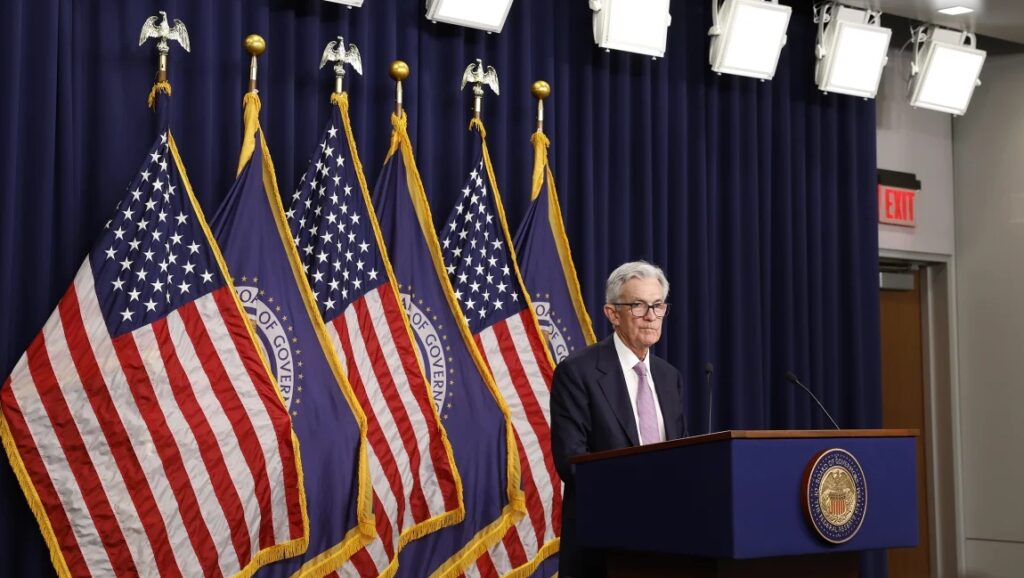A dense fog shrouding the US economy may soon begin to lift.
For months, consumers and businesses alike have felt a sense of paralysis as they await the outcome of the upcoming presidential election, delaying purchases and investments until they know who will occupy the White House. Surveys and corporate executives’ comments highlight this uncertainty.
Vice President Kamala Harris and former President Donald Trump present differing economic agendas aimed at improving affordability and strengthening the economy. However, their contrasting approaches could lead to significant differences in taxes and inflation. Given the tight race in the polls, clarity on the country’s economic policy may take time to emerge.
One key insight that will arrive soon is the Federal Reserve’s latest interest rate decision, set to be announced Thursday. In September, the Fed cut borrowing costs for the first time in over four years and hinted at further reductions. Since then, a range of economic data has been released that will inform the Fed’s decisions. Chair Jerome Powell’s remarks during the post-meeting news conference could provide insight into whether officials still expect to continue cutting rates.
While not all uncertainties will be resolved this week, the prevailing wait-and-see attitude in the US could start to thaw.
The Impact of Election Outcomes on Economic Direction
The election’s outcome will have long-term implications for the economy, leading many to postpone crucial decisions like business expansions or home purchases. Trump’s economic vision includes drastic measures such as mass deportations and high tariffs, while Harris advocates for more gradual approaches, like reinstating an expired child tax credit and enhancing startup expense deductions.
Though both candidates aim to relieve economic pressure on everyday Americans and businesses, a Wall Street Journal survey revealed that over two-thirds of economists believe prices would rise faster under Trump’s plan than under Harris’s. High tariffs, a cornerstone of Trump’s strategy, threaten to increase costs for businesses and could lead to accelerated consumer inflation.
A recent survey conducted by two regional Federal Reserve banks and Duke University found that nearly a third of CFOs from various companies have postponed or scaled back their investment plans this year due to election-related uncertainty. One manufacturer noted in the Institute for Supply Management’s latest survey that the uncertainty has prompted numerous risk analysis studies.
Consumers, too, are hesitant to make significant purchases, such as buying homes. According to Lawrence Yun, chief economist of the National Association of Realtors, sluggish sales of previously owned homes may be linked to election uncertainty. “People might be waiting to see the election results before making major decisions like buying or selling homes,” he said, suggesting that a post-election surge could occur.
Awaiting Further Rate Cuts from the Fed
The focus is also on whether US interest rates will decrease further, which appears likely. Recent employment figures indicate a cooling job market, with the Fed expressing commitment to maintaining employment levels and suggesting that current interest rates remain restrictively high. With the job market stabilizing after stronger-than-expected growth in September, another rate cut seems imminent. Investors are largely betting on a quarter-point reduction this week.
Lower rates could encourage home buyers to enter the market and enable businesses to proceed with plans based on the expectation of continued rate cuts. The next steps now hinge on the Fed’s forthcoming decision.

